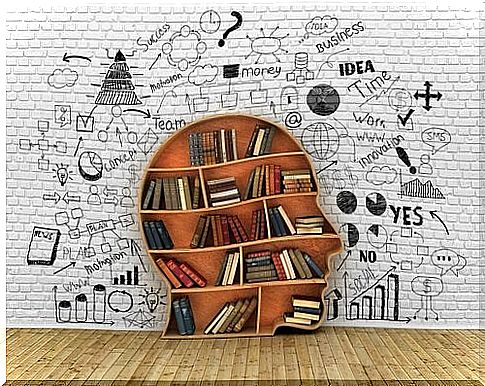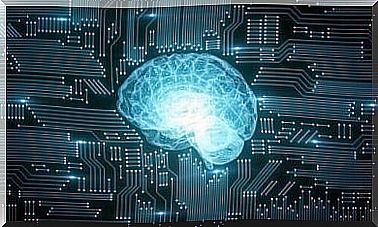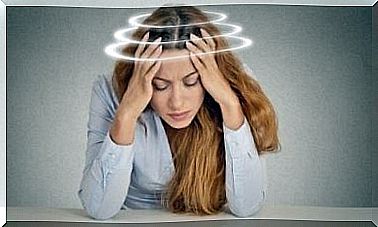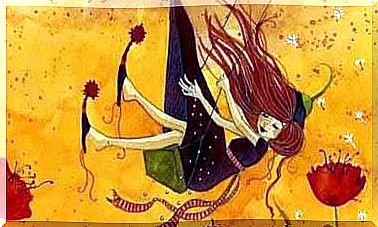Bibliotherapy: The Healing Power Of Books

Bibliotherapy involves using the power of books to help ourselves both physically and mentally. Reading is one of the best ways for people to cultivate their minds. Books have instructed, entertained and protected us throughout history.
On some occasions they have given us hope and served as shelter and comfort. Some people even say that books saved them.
Books are magical. According to Freud, words and magic are the same. This is also why we often seek refuge in books. The experience of healing through books is known as bibliotherapy.
There is no doubt that reading helps improve our emotional health. In addition, however, reading offers even more benefits, even if we are not aware of them.
The positive effect of reading can be seen in people with emotional problems, mild or moderate mental disorders and even physical problems. Let’s dig a little deeper into this.
Forms of bibliotherapy
First of all, we must distinguish between the two main forms of bibliotherapy. Both are similar and usually serve the same purpose.
- Clinical: The goal is for patients to change their attitudes and behavior. Because of this, this type of therapy usually takes place in a hospital setting. This therapy is used to help people who suffer from mood disorders, ADHD or eating disorders.
- Books are used to provide information on a specific topic. They can help the patient focus on a specific aspect of their reality.
- Evolutionary or personal development: the goal is personal growth. Groups or individuals read in a preventive or corrective way. Libraries or educational centers are perfect places for this kind of bibliotherapy.
- The literature is based on proposing self-help methods, which include exercises or personal learning tasks such as being more assertive, introduction to meditation, public speaking and so on.

The effects of bibliotherapy on the brain
“He’s a very well-read person.” We often say things like this to refer to intellectual people. Reading often provides us with this intelligence. However, in addition to increasing knowledge, reading also offers many benefits at a therapeutic level.
Curative distraction
Who has never lost themselves in a book that took them to a completely different world? When we immerse ourselves in stories, we forget about our own worries and problems. Instead, we focus entirely on the story we are reading.
By taking a few minutes away from our reality, we disconnect ourselves from our fears and worries. This then helps to improve our mood. However, this all happens unconsciously.
It makes things less dramatic
How often do we obsess over a problem. We simply can’t stop thinking about it. Sometimes we actually turn a mosquito into an elephant. After all, we can’t ignore that elephant.
In this situation, books can be immensely helpful and broaden our horizons. It’s okay to be selfish and preoccupied with ourselves sometimes, but everything in moderation.
Bibliotherapy in many cases makes our situation less dramatic. Thanks to fiction, we feel less alone and we feel empathy for the characters’ problems. This gives us a broader perspective on life. It can even give the reader a sense of peace or a greater capacity for reflection.
Reading invites emotional growth. This growth allows us to gain new inspiration and feel energized about the future.
According to Dr. Raymond Mar, an expert on reading and the brain, reading through characters’ experiences triggers the same brain activity as experiencing something in real life yourself.

Luck
Ceridwen Dovey published an article in The New Yorker discussing the healing power of bibliotherapy.
“In a secular age, I suspect that reading fiction is one of the few remaining paths to transcendence, that elusive state in which the distance between the self and the universe shrinks. Reading fiction makes me lose all sense of being, but at the same time makes me feel most unique,” says Dovey.
In addition, neuroscientists at Emory University in Atlanta found encouraging results. They concluded that reading lowers stress levels and increases psychosocial development.
Empathy
The ability to put yourself in someone else’s shoes and understand their emotions is eminently social. However, you don’t have to be surrounded by other people to develop empathy.
In books , words are a simulation of reality. It is therefore a myth to think that reading is only for lonely people.
By understanding the development of stories and empathizing with the characters, we can improve the way we interact with others. In addition, reading fiction is one of the factors that contribute to the development of the famous “theory of mind.”
Depression and Anxiety
Reading-based treatments aimed at treating anxiety and depression have shown excellent results. In fact, the National Institute for Health and Care Excellence (NICE) even recommends bibliotherapy to help patients with mild forms of anxiety and depression.
In England, a campaign was launched that was mainly aimed at young people. This campaign was called ‘Reading Well’. Thanks to this campaign, doctors can now also prescribe reading to treat certain types of mental disorders.
The healing power of books is very great. While the results may not be immediate, long-term reading does provide great benefits to both mind and body. So, why not give it a try?









